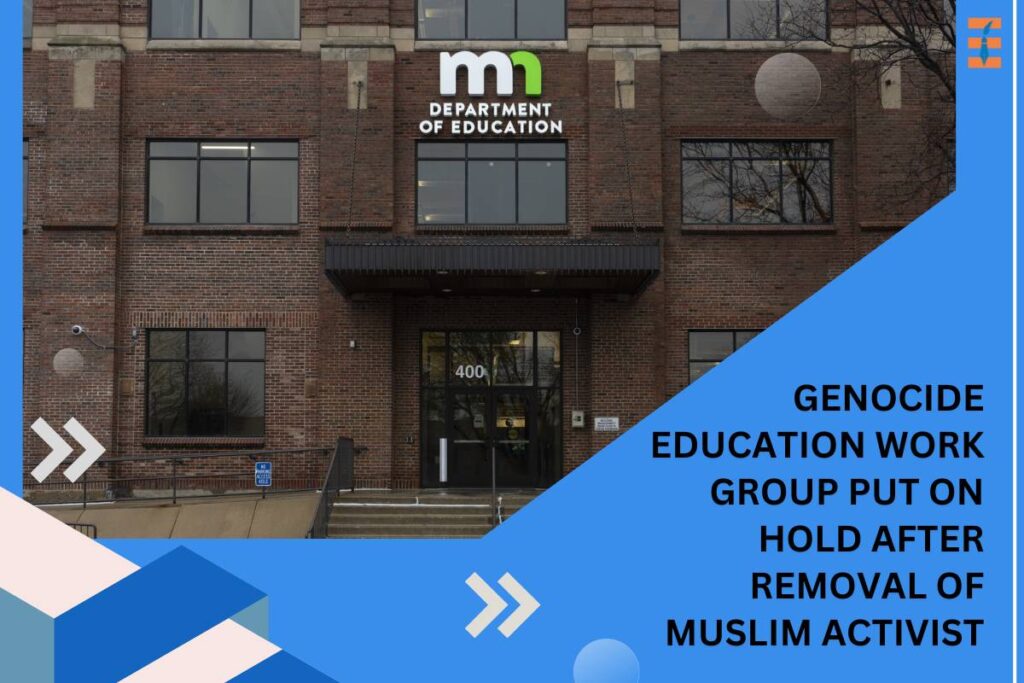Source- Sahan Journal
The Minnesota Department of Education recently found itself embroiled in controversy after the removal of a Muslim activist, Asma Mohammed, from the Education on the Holocaust, Genocide of Indigenous Peoples, and Other Genocides Working Group. Mohammed, who had been appointed to the working group, was later ousted, sparking outrage and scrutiny over the selection process and criteria for membership.
The agency acknowledged receiving feedback about the working group’s development process, particularly concerning member selection and notification procedures. The controversy gained widespread attention after Mohammed shared her experience on social media, highlighting discrepancies in the lists of working group members that included and excluded her name.
Agency Responds with a Pause
In response to the mounting pressure and public scrutiny, the Minnesota Department of Education announced a temporary halt in the progress of the genocide education working group. The agency stated that it is collaborating with the co-chairs of the group to chart a course of action that ensures the group’s effectiveness and aligns with its legislative mandate.
Asma Mohammed cautiously welcomed this development, expressing hope that it signifies a genuine effort to address concerns rather than a tactic to delay the issue until it fades from public attention. Her experience underscores broader questions about representation and inclusivity in educational initiatives aimed at addressing historical atrocities and genocide.
Challenges and Questions Ahead
The pause in the working group’s activities reflects broader challenges concerning the recognition of diverse perspectives and experiences related to genocide education. Co-chair Joe Eggers and Laura Zelle acknowledged the need for careful consideration to avoid such controversies in the future and to ensure the group’s success in fulfilling its legislative mandate.
The incident also raises fundamental questions about who has the authority to define and recognize genocide, whose narratives receive acknowledgment, and how educational resources can appropriately reflect diverse historical experiences. These questions resonate not only within Minnesota but also across the United States, where discussions about historical narratives and educational curriculum are ongoing and contentious.
The working group’s final report to the Legislature remains due in November 2025, highlighting the importance of addressing these issues promptly and thoughtfully. The outcome of this pause and subsequent actions taken by the Minnesota Department of Education will likely shape future discussions and approaches to genocide education and historical recognition in the state and beyond.
Also Read: Pro-Palestinian Valedictorian Speaks Out After USC Cancels Commencement Speech










